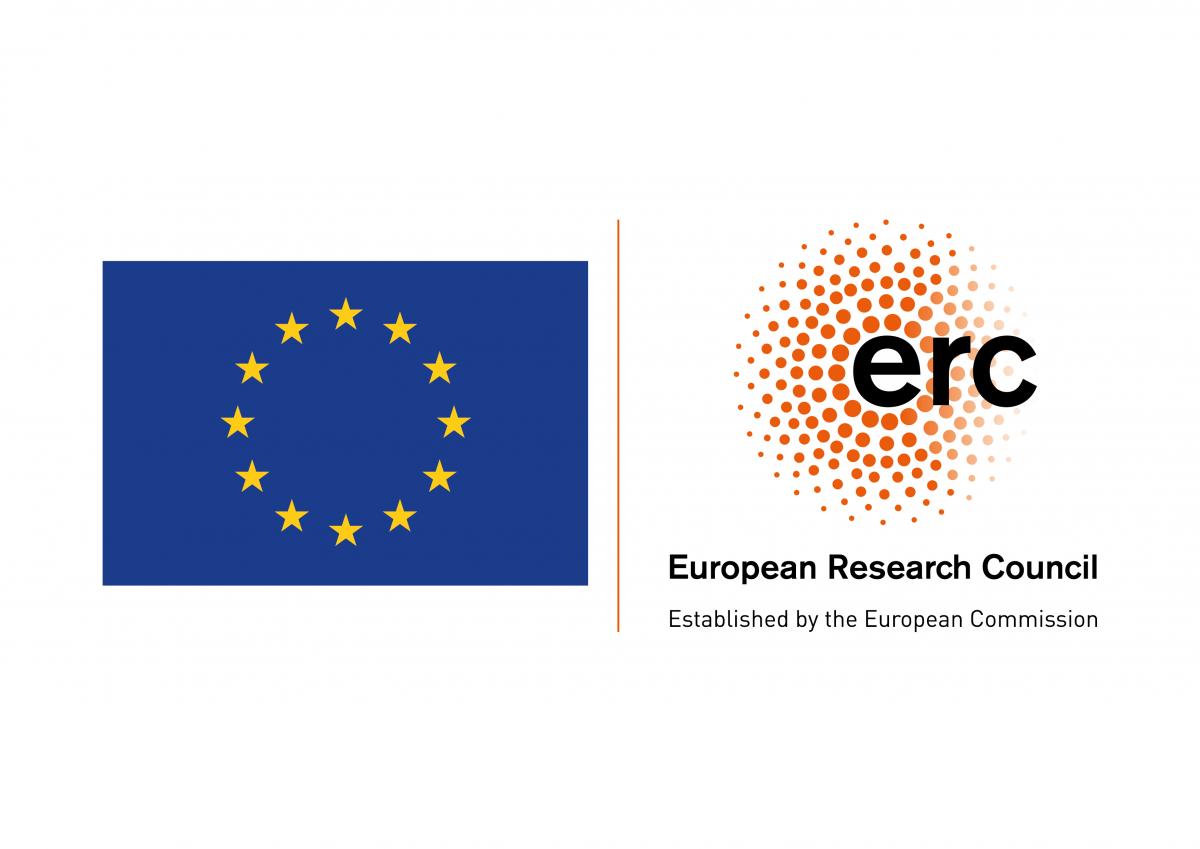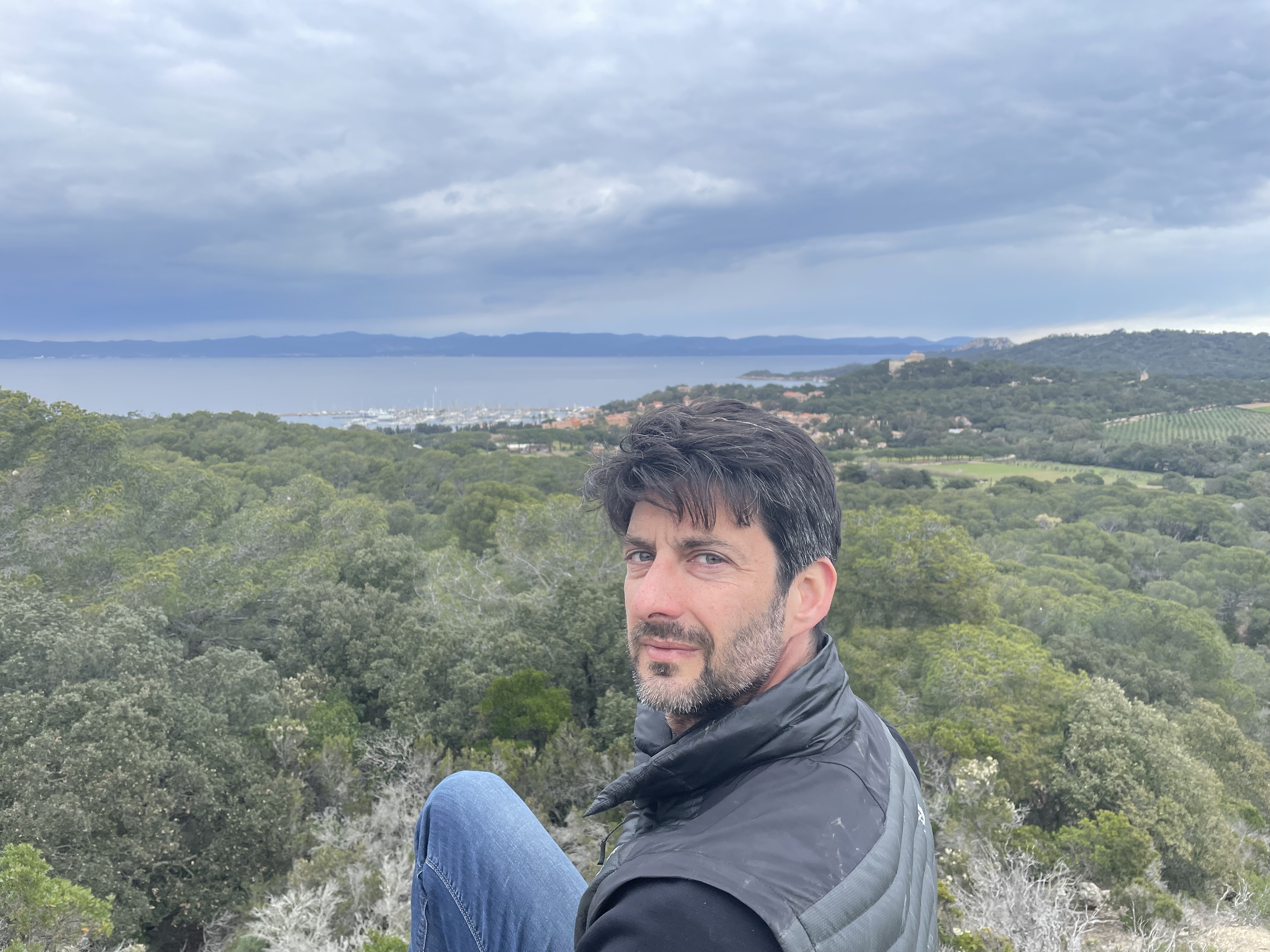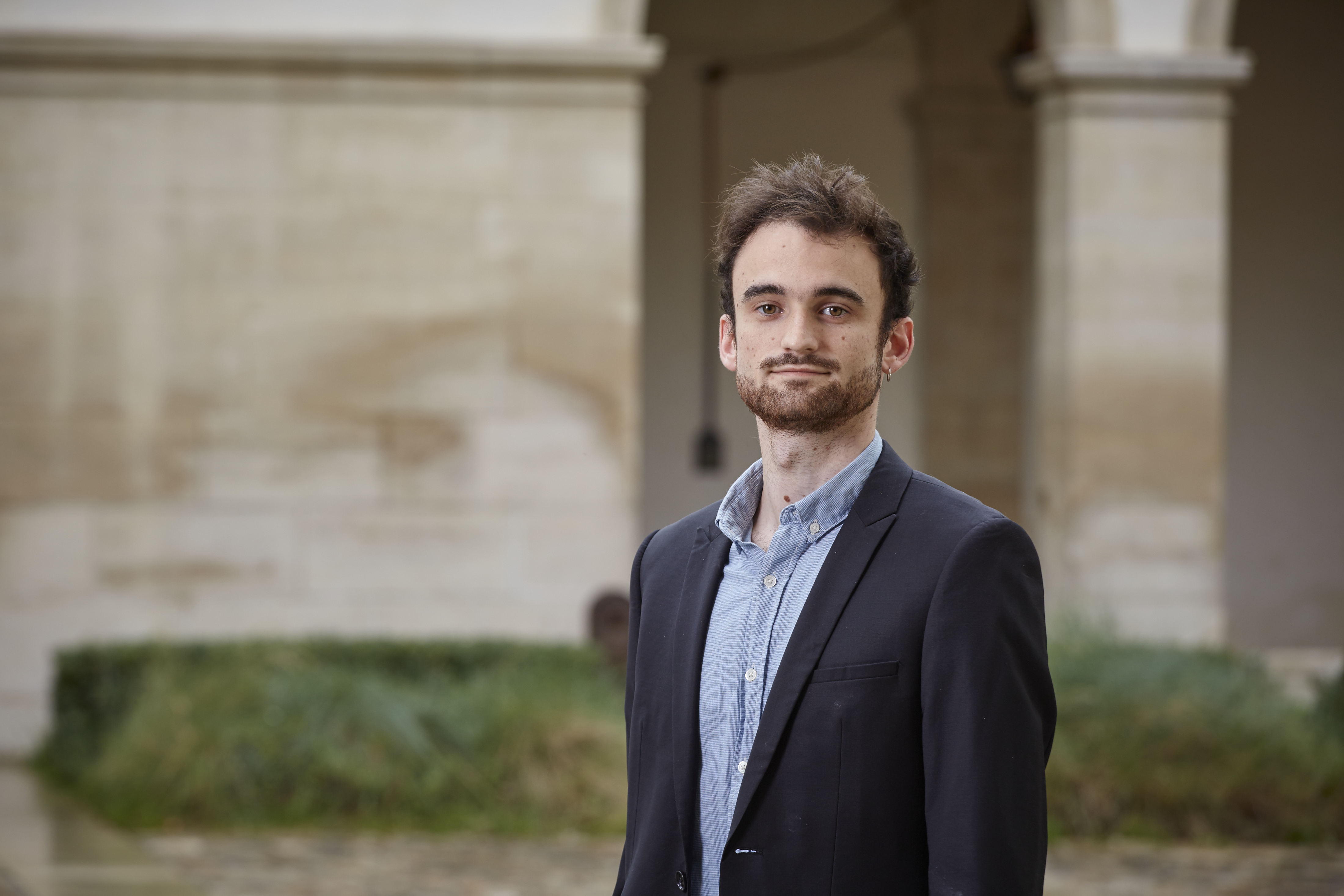ERC Consolidator Grant IMEDMC
Information and Misinformation Economics:
Design, Manipulations and Countermeasures


The Project
Information structures shape the possible outcomes of strategic interactions as agents learn from, and respond to the signals they receive. Often, however, agents can also respond to the conditions of information production before any information is even generated. When their interests are at stakes, agents may try to interfere with the production of information, or preemptively change the underlying reality for fear of what might be revealed. For example, reporting on the practices of firms may lead them both to opt for cleaner production processes or engage in greenwashing. The IMEDMC project seeks to advance our understanding of the effect of information structures in situations where agents respond both before and after information is produced.
The Team
Everyone who contributed to the research in this project.
Victor Augias. Victor received his PhD in economics from Sciences Po in 2023. He works on information design, mechanism design and behavioral economics. He is now a postdoc at Bonn University. Here is his website.
Daniel M. A. Barreto. Daniel received his PhD in economics from Sciences Po in 2023. He works on information economics, behavioral economics and political economics. He is now an assistant professor at the University of Anmsterdam. Here is his website.
Jacopo Bizzotto. Jacopo is an Associate Professor at Oslo Business School, OsloMet. His research uses microeconomic theory to study how information is generated and shared in markets. Here is his website.
Alexis Ghersengorin. Alexis received his PhD from the Paris School of Ecoomics in 2022. He works on information design and communication, decision theory and behavioral economics. He worked with us at Science Po on the IMEDMC project in 2021-2023. He is now a postdoc at Bonn university. Here is his website.
Laure Goursat. Laure received her PhD from the Paris School of Ecoomics in 20224, and joined us for a postdoc at Sciences Po on the IMEDMC project in February 2024. Her work is in microeconomic theory. She has strong interests for matching, information, bounded rationality, and evolution. She is on the 2025-26 job market. Here is her website.
Emeric Henry. Emeric is a Professor at Sciences Po. He is a microeconomist using theory, experimental and empirical methods to study questions in law and economics. Here is his website.
Eduardo Perez-Richet. Eduardo is a Professor at Sciences Po and the recipient of an ERC consolidator grant for the IMEDMC project. He works on microeconomic theory, game theory, information economics and political economics. Here is his website.
Aurélien Salas. Aurélien is a PhD candidate at Sciences Po, on the 2025-26 job market. He works on the economics of platforms. Here is his website.
Vasiliki Skreta. Vasiliki is a Professor at UT Austin and at UCL. She is a microeconomic theorist working primarily on mechanism design. Here is her website.
Adrien Vigier. Adrien is a Professor at the University of Nottingham. One part of his current work lies at the intersection of mechanism design and information design, and the other part in finance. Here is his website.








The Research
Area 1: Disinformation
We study models of strategic disinformation by an agent seeking to influence the beliefs and actions of a heterogeneous population of receivers by broadcasting and spreading false news.
Area 2: Testing, Allocation and Selection under costly state manipulations
We study the optimal design of tests, allocation mechanisms or selection rules when transfers are not available to mediate transactions and the designer must rely on a manipulable measure of the characteristics of candidates.
Score-Based Mechanisms, Abstract: We propose a mechanism design framework that incorporates both soft information, which can be freely manipulated, and semi-hard information, which entails a cost for falsification. The framework captures various contexts such as school choice, public housing, organ transplant and manipulations of classification algorithms. We first provide a canonical class of mechanisms for these settings. The key idea is to treat the submission of hard information as an observable and payoff-relevant action and the contractible part of the mechanism as a mapping from submitted scores to a distribution over decisions (a score-based decision rule). Each type report triggers a distribution over score submission requests and a distribution over decision rules. We provide conditions under which score-based mechanisms are without loss of generality. In other words, situations under which the agent does not make any type reports and decides without a mediator what score to submit in a score-based decision rule. We proceed to characterize optimal approval mechanisms in the presence of manipulable hard information. In several leading settings optimal mechanisms are score-based (and thus do not rely on soft information) and involve costly screening. The solution methodology we employ is suitable both for concave cost functions and quadratic costs and is applicable to a wide range of contexts in economics and in computer science. This version: March 2024 with Vasiliki Skreta, 2024.
[PDF]Falsification-proof Non-market Allocation Mechanisms, Abstract: Relying on manipulable characteristics to target the allocation of resources is problematic. Naively optimal rules lead to falsification and allocative inefficiency. Optimizing the rule for allocative efficiency while accounting for falsification typically induces rather than eliminates falsification, at a heavy cost to the agents. Furthermore, falsification causes fairness concerns and negative social externalities. We show that optimal falsification-proof rules offer a viable alternative, eliminating negative externalities and, under some conditions on the falsification technology, significantly improving the agents' welfare, at a low cost in allocative efficiency. To do so, we characterize optimal falsification-proof rules under a rich variety of falsification technologies. We also examine the impact of demographic changes on allocations within and across identifiable groups, under resource and quota constraints. This version: January 2025 with Vasiliki Skreta, 2025.
[PDF]Test Design under Falsification, Abstract: We study the optimal design of tests with manipulable inputs. Tests take a unidimensional state of the world as input, and output an informative signal to guide a receiver's approve or reject decision. The receiver wishes to only approve states that comply with her baseline standard. An agent with a preference for approval can covertly falsify the state of the world at a cost. We characterize receiver-optimal tests and show they rely on productive falsification by compliant states. They work by setting a more stringent operational standard, and granting noncompliant states a positive approval probability to deter them from falsifying to the standard. We also study how falsification-detection technologies improve optimal tests. They allow the designer to build an implicit cost of falsification into the test, in the form of signal devaluations. Exploiting this channel requires enriching the signal space. This version: November 2021 Eduardo Perez-Richet and Vasiliki Skreta, Econometrica, 2022, 90, 3, 1109-1142.
[PDF] [Appendix]
Area 3: Delegated information design
We study optimal contracts for delegated information design: the principal must rely on an agent to design or implement some dimensions of her informational policy, but can only contract on the actions undertaken by some third party at the receiving end of the informational process.
Communication via Third Parties, Abstract: A principal designs an information structure and chooses transfers to an agent that are contingent on the action of a receiver. The principal faces a trade-off between, on the one hand, designing an information structure maximizing non-monetary payoffs, and on the other hand, minimizing the information rent that must be conceded to the agent in order to implement the information structure which the principal designed. We examine how this trade-off shapes communication. Our model can be applied to study the relationship between, e.g.: political organizations and the public relations companies that campaign on their behalf, firms and the companies marketing their products, consultancies and the analysts they employ. This version: March 2021 with Jacopo Bizzotto, Eduardo Perez-Richet, and Adrien Vigier, 2021.
[PDF]Information Design with Agency, Abstract: We consider a general information design problem in which the task of running a procedure generating information for a continuation game is performed by an agent. A moral hazard problem therefore emerges in which the principal faces a trade-off between generating information that is persuasive in the continuation game, and efficiently in- centivizing the agent to comply with the procedure designed. Standard concavification techniques do not apply in this environment. We provide a general methodology to tackle such problems, and examine the way in which moral hazard affects the optimal procedure of the principal. This version: February 2020 Jacopo Bizzotto, Eduardo Perez-Richet, and Adrien Vigier, 2020.
[PDF]
Area 4: State Modification
We study the optimal design of tests, allocation mechanisms or selection rules when candidates can respond to the mechanism by investing in their type.
Non-Market Allocation Mechanisms: Optimal Design and Investment Incentives, Abstract: We study how to optimally design mechanisms for allocating scarce resources, accounting for agents’ investment incentives. A principal wishes to allocate a resource of homogeneous quality, such as seats in a university, to a heterogeneous population of agents. She commits ex-ante to a possibly random allocation rule that depends on a one-dimensional characteristic of the agents that she intrinsically values, but does not have access to monetary transfers. Agents have a strict preference to be allocated the resource and may undertake a costly investment to improve their characteristic before it is revealed to the principal. We show that while random allocation rules have the effect of encouraging investment, especially at the top of the characteristic distribution, deterministic pass-fail allocation rules, such as exams with a pass grade, prove to be optimal. New version coming Victor Augias and Eduardo Perez-Richet, 2022.
Area 5: Market segmentation
We study the optimal segmentation of monopolistic markets under different objectives such as: a social planner with redistributive concerns, or a platform trading off the incentives of consumers to enter the platform, and its share of the profits of monopolistic sellers.
Price Discrimination with Redistributive Concerns, Abstract: Consumer data can be used to sort consumers into different market segments, allowing a monopolist to charge different prices at each segment. We study consumer-optimal segmentations with redistributive concerns, i.e., that prioritize poorer consumers. Such segmentations are efficient but may grant additional profits to the monopolist, compared to consumer-optimal segmentations with no redistributive concerns. We characterize the markets for which this is the case and provide a procedure for constructing optimal segmentations given a strong redistributive motive. For the remaining markets, we show that the optimal segmentation is surprisingly simple: it generates one segment with a discount price and one segment with the same price that would be charged if there were no segmentation. This version: November 2022 Victor Augias, Daniel A. M. Barreto and Alexis Ghersengorin, 2022.
[PDF]Who is left to pool? Price discrimination with endogenous participation, Abstract: To what extent should platforms enable price discrimination by sellers when buyers can vote with their feet? I assume that buyers are endowed with an outside option and a belief about their valuation before they decide whether to participate in the platform or not. For the platform, endogenous participation creates a trade-off between surplus extraction and participation. It also imposes a constraint: when participation increases with valuations, the segmentation rules that deliver the highest buyer surplus under full participation cannot be implemented. I characterize the feasible welfare frontier and derive the platform’s optimal segmentation under three alternative assumptions about buyer information. Overall, while endogenous participation can push platforms to give more surplus to buyers, it can also limit their ability to implement the most buyer-friendly segmentation rules. This version: November 2025 Aurélien Salas, , 2025.
[PDF]
Events
Second Summer Workshop in Microeconomic Theory: June 26, 2025.
With the help of the ERC, we are holding a second Microeconomic Theory workshop in the Sciences Po series of Summer Workshops in Economics. All the details are here.
First Summer Workshop in Microeconomic Theory: June 10, 2024.
With the help of the ERC, we are adding a Microeconomic Theory workshop for the first time to the Sciences Po series of Summer Workshops in Economics. All the details are here.